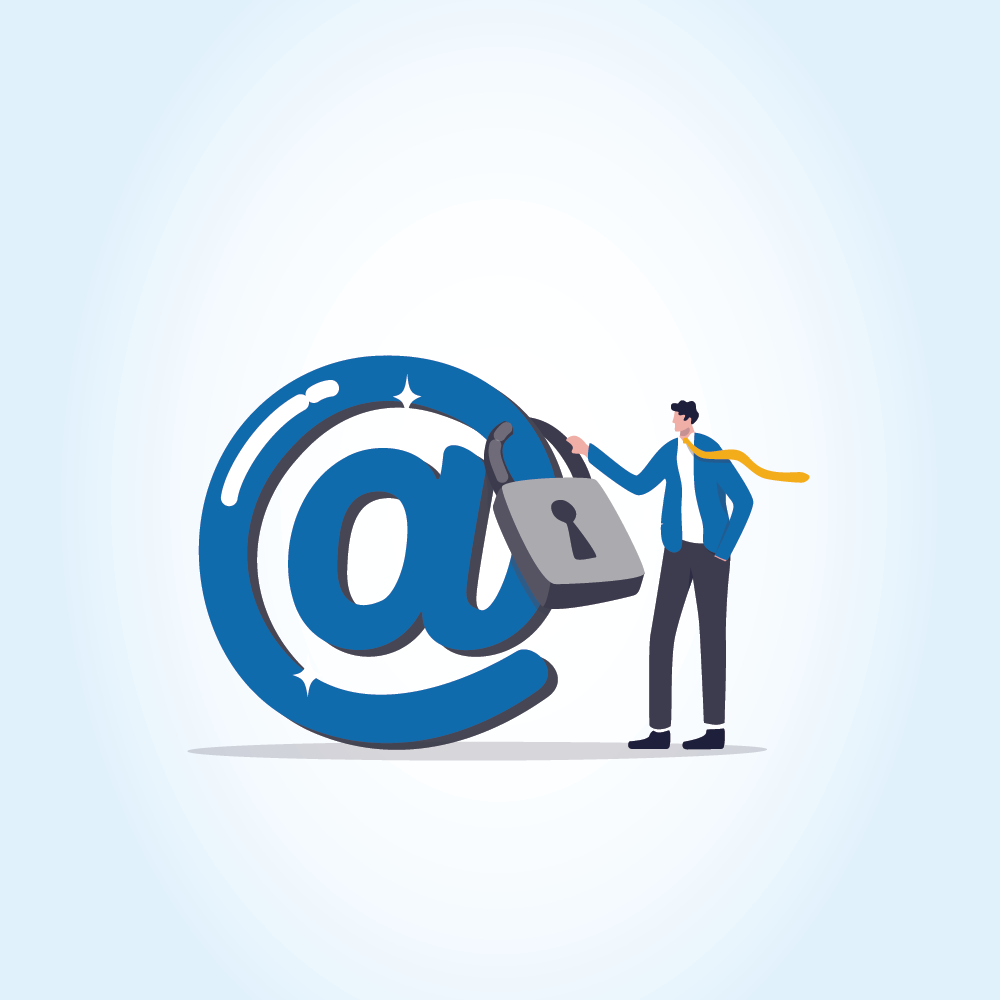SMS Messages and Instant Messages may be a quick and easy way for us to communicate, however, whether it’s for business or personal use – Emails are our number one form of communication.
From bills, bank statements, financial data, or even communications with insurance companies – our mailboxes contain a host of information that if pieced together can reveal our identity. With so much personal and confidential information stored in emails, privacy becomes a basic right to protect our digital identity and data.
Before we look at how we can achieve email privacy, it’s important to understand why everyone deserves it.
Over the years, there has been an increased in attacks on emails. Emails are seen as a gateway to your digital data, and thus your identity. According to research, a hacker attacks every 39 seconds. If successful, the information stored in emails could potentially fall into the wrong hands and be used to sell online, or your identity was stolen to commit other crimes. With various forms of threats from malicious agents like cyber criminals, it’s important to keep your email communications as private as the spoken word.
Benefits of Email Privacy
- Control over data: Having email privacy gives you the ability to communicate freely without being free of your content being abused, or vulnerable to threats. Private email services use encryption techniques to ensure that only you and the intended recipients of your messages can read them. For instance, you can send a secure email to your contact, and no one else can read it apart from them.
When you use “free” email services such as Gmail, and Yahoo, you know that they are not entirely private Popular Email providers monitor how you interact with email accounts, and track who you write to, what’s in your emails and the time you send them. If Tech Giants can hold this much data on your email accounts, imagine the risks if that information is caught by cyberattacks hacking into these accounts.
That’s why Private email solutions use encryption techniques designed to simply lock your content, including attachments to prevent any leaks occurring in the event of cyber-attacks. - Reduce data breaches: Giant tech companies such as Gmail, Yahoo or Outlook may encrypt your data whilst t travels, but they still have the encryption keys that access your content. So, in the event of a data leak on their servers, your information on emails would be stolen.
- Business Security: Information passed over email exchanges is the lifeline of any business. That’s why it’s important to safeguard it from any possible leaks.
How To Keep Your Emails Private
Fortunately, there are several measures you can take to ensure that your emails remain secure including encryption, authentication protocols, and other steps you can take to protect your data.
- Encryption for Email Privacy: The most important factor in email privacy is encryption. Encryption is a process by which data is translated into a code that cannot be read by anyone other than its intended recipient. This ensures that no one else can access the contents of your email messages or any attachments you may have sent along with them.
Solutions such as Siccura Mail are designed to protect email content. The simple-to-use solution connects with existing email accounts hosted on popular services such as Gmail, Yahoo, and Outlook and locks the data so only you and intended recipients can access it. What’s more, with its Zero-knowledge policy, not even Siccura Mail has the keys to unlock your messages. - Authentication Protocols: Another way to ensure email privacy is through authentication protocols such as SPF (Sender Policy Framework), DKIM (DomainKeys Identified Mail) and DMARC (Domain-based Message Authentication). These protocols are designed to combat phishing attacks by verifying that the sender of an email message is who they say they are. When someone sends an email from their domain name with these authentication protocols enabled, it helps prevent malicious actors from sending out fake emails in order to gain access to sensitive information.
Simple Email Security Practices
Although Privacy and Security mean two different things, both go hand in hand. To truly enjoy email privacy, it’s important to also practice security tips.
- Always use a strong password when creating an email account. Avoid using common words or phrases that could be guessed easily by someone trying to access your account.
- Consider using two-factor authentication when logging into email accounts since this will add an extra layer of security.
- Use secure protocols like TLS or SSL whenever possible as these encrypt all information sent via email so it remains safe while in transit between servers.
- Avoid opening suspicious emails or clicking on links from unknown sources in order to prevent malware infections or other malicious activity from occurring on your devices.
- Make sure all software programs used with your emails are kept up-to-date with the latest patches and updates so any known vulnerabilities can be addressed quickly.
Email privacy is your basic right! Signing up for an email data protection solution will help you achieve privacy throughout. At Siccura, our mission is to help businesses, and individuals achieve a private and secure digital life. That includes helping people protect their digital data in any form. Our Siccura Mail solution is developed to help businesses, keep their professional exchanges as private as the spoken word. So, no matter what the data is, and no matter who is it sent to – Siccura Mail protects it. If you continue to send emails, we’ll help you secure them and keep the private, no matter which email provider you use.
